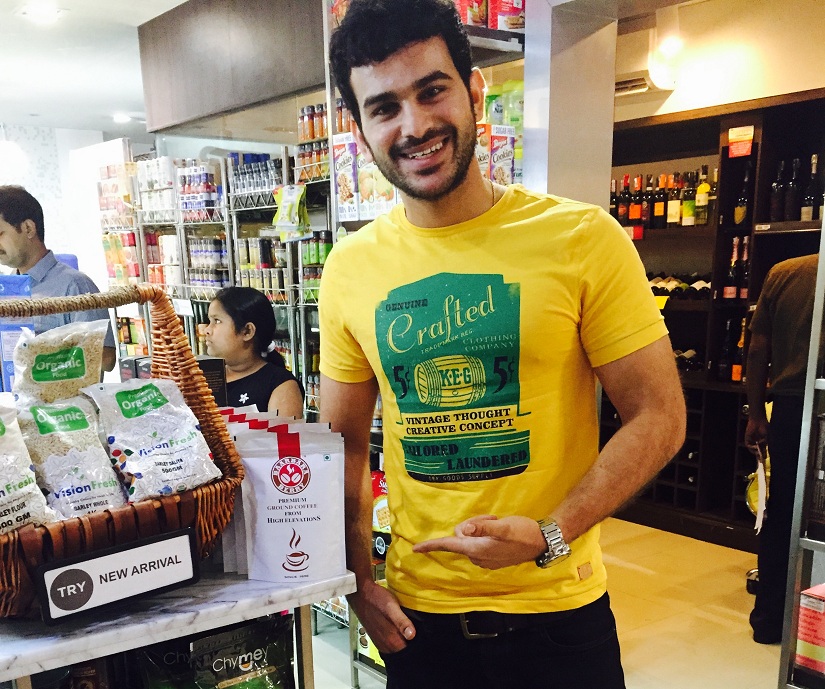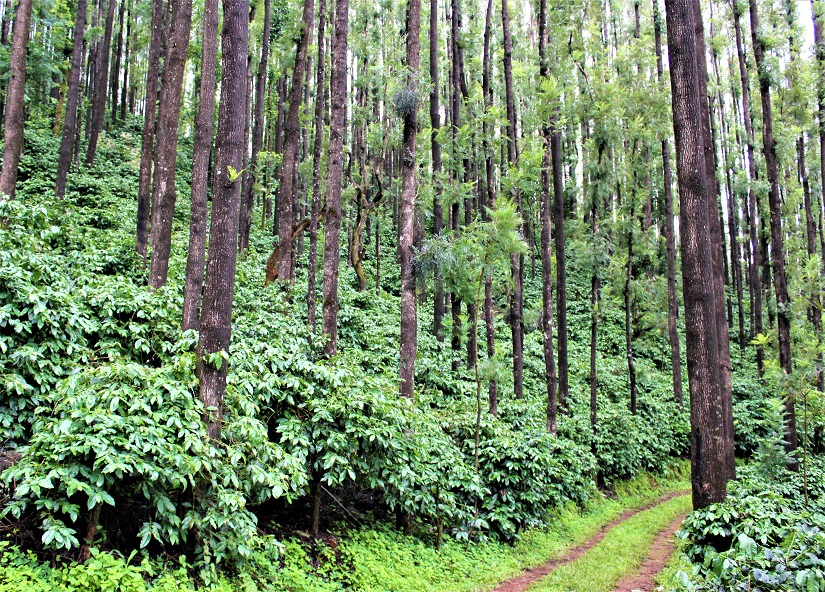Sreeraksha Poornesh loves the product of his plantations over all other coffees from around the world. But this is neither boast nor an arrogant statement in the wake of serious success. It is simply his truth, born out of the sheer love for farming and the coffee at Baarbara Estate. “At the end of the day, I’m a farmer and my heart and soul always say that my coffee is the best.”
The 30-year-old is a fourth-generation coffee grower of the illustrious MG Plantations of Chikmagalur, owned and run by the Indavara family for over 120 years. Baarbara Estate gets its name from the Anglo-Indian lady who sold the plantation to Poornesh’s great-grandfather eons ago. And Poornesh attributes his success, first and foremost, to its location. “I’m very lucky to have been handed down an estate on Baba Budan Giri,” he says.
For those who don’t know, the mountain is named after the 17th-century Sufi saint Baba Budan, who is said to have introduced coffee to India when he brought seven beans from Mocha, Yemen, to the country and planted them across the range. In January, the Coffee Board of India submitted an application for the Geographical Indication (GI) tagging of Babu Budan Giri arabica. The GI tag is meant to protect the heritage and quality status of a particular product; according to the World Intellectual Property Organization, it’s a “sign used on products that have a specific geographical origin and possess qualities or a reputation that are due to that origin.”
However, that isn’t enough to stay relevant, and Poornesh, armed with an MBA from Alliance Business School in Bengaluru, has introduced several new measures to keep up the business. Apart from getting high cup scores every year, he is now inviting roasters to the plantation to process the beans as they like and take them back to their establishments. In light of the changing coffee scene in India and the wave of speciality roasters cropping up across the country, this move is bold and certain to pay off.
“A cup is a team show,” says Poornesh. “As farmers, we do 60 percent of the work to ensure that the coffee you drink is amazing. The process starts with us and ends with roasters.”
Last season, the first roaster Poornesh brought over was Mithilesh Vazalwar, India’s first AeroPress champion and one of the country’s only 25 coffee Q-graders. Their mutual interest in the best-quality beans and obsession with everything coffee lead to a high-grade product that discerning customers can’t wait to get their hands on.
“A certain trend has been set by traditional roasters in India over centuries,” says Poornesh. “I realised that so much of the beans wasn’t processed and handled well. Now, we’ve taken things to a decent level and most third-wave roasters in India get our beans.”

Remarkably, having grown up with coffee, Poornesh wasn’t interested in joining the family business. After his MBA, he spent a couple of years working in Bengaluru before returning to Chikmagalur five years ago. He then began to study coffee in-depth, participating in workshops by the likes of Sunalini Menon (Asia’s first female coffee taster and expert) and attending lectures for coffee entrepreneurs at the Indian Institute of Plantation Management. He also did Kaapi Shastra, a coffee training programme by the Coffee Board of India.
“My goal is to dilute everything we grow into speciality coffee,” says Poornesh. Baarbara produces single-origin arabica at present. But he has no plans of expanding internationally, he adds. He has his sights firmly set on the Indian scene. “There’s a lot of potential here, a lot to do. I entered the business at just the right time.”
The brand Baarbara Berry’s status as one of India’s top-ranking coffees is also owed to Poornesh’s driven spirit. In the face of many challenges, including stiff competition, he is focused on getting higher cup scores every year. “You can’t be lax,” he says. “It’s not like you achieve a certain level and then let go. The crop is different every year, and it’s imperative that our cup quality is on the mark. Every year, in the beginning of the season, roasters test the quality, so consistency is very important.”
Now that Baarbara Berry has reached a certain level, Poornesh believes that the farmer-roaster interaction should progress too. Because harvesting and processing are intricate processes and significantly impact brew quality – flavour, texture, acidity, body – roasters can choose their methods for the kind of coffees they want.
Baarbara Berry offers green coffee as well as a range of roasted and ground beans. Owing to high elevation, around 5,000 feet, the ethically sourced and handpicked beans produce rich, full-bodied brews with balanced flavours and finish. MG Plantations is Rainforest Alliance Certified and UTZ Certified, for sustainable farming and better opportunities for farmers.
source: http://www.firstpost.com / FirstPost. / Home> Latest News> Living News> Living / by Tania Bhattacharya / June 25th, 2018


